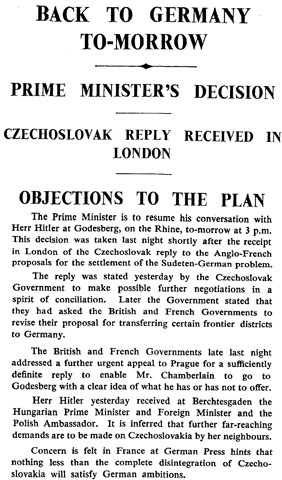Debating bombing and foreign intervention — III
So let’s have a look at the responses to Chamberlain’s response to Noel-Baker’s parliamentary motion of 21 June 1938. First up was Sir Archibald Sinclair, leader of the Liberal party. He was mainly concerned with foreign policy more generally, asking whether the recent Anglo-Italian agreement was not intended as part of an effort by Mussolini […]


